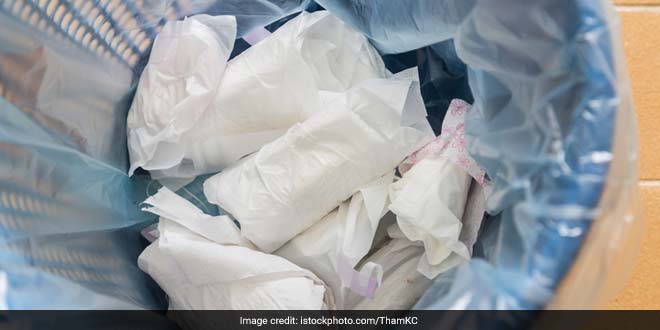New Delhi: Every month, India produces over 1 billion non-biodegradable sanitary pads waste which ends up going into urban sewerage systems, landfills, open fields and water bodies, where it stays for almost 100 years. With each passing day, this staggering amount of waste is increasing given there are 355 million menstruating women in India. In a bid to overcome this grim reality and make people aware about menstrual waste management system the University Grants Commission (UGC) has appealed various higher educational institutions to install sanitary napkin incinerators in women’s hostels. This step will ensure proper disposal of menstrual waste and will take off some of the waste load from the planet.
In an effort to promote proposal disposal of menstrual waste and promote the Swachh Bharat Mission, it is imperative that we take the initiative to promote menstrual sanitation and proper disposal of menstrual waste by creating awareness, encouraging every woman to use eco-friendly incinerators and promoting research for a biodegradable alternative. We appeal all the educational institutions to install sanitary napkin incinerators within the premises of women’s hostels, says a University Grants Commission’s official letter which has been sent to all the higher educational institutes across India.
The UGC communication also highlighted the cost for one set of machinery which is ₹49,646 and said that the expenditure incurred can directly be booked under the solid waste management component of the Swachh Bharat Mission.
How Sanitary Napkin Waste Is Killing Our Planet
90% of a sanitary napkin is made from plastic that makes it a non-biodegradable product which ends up staying on Earth for some 100 years simply because it cannot be decomposed on its own. That’s one of the prime reasons why sanitary napkin disposal is becoming a matter of concern in India.
It is also believed that sanitary wear releases toxic chemicals as by-products which are dioxin and furan that can cause cancer. When combined with the land, water, soil, and air it can pollute not only the entire environment but can pose serious health issues. Another major problem is that the soiled napkins accumulate a lot of bacteria such as Escherichia coli, which multiply rapidly. The heaps of sanitary napkins which are there on our planet are the breeding ground for disease-causing bacteria. This is because in our country there is no proper disposal system of sanitary napkins in place.
This step taken by UCG is in the right direction, if implemented by all educational institutes across India it will definitely help reduce the burden of menstrual waste and aid in effectively dealing with it in future.
























